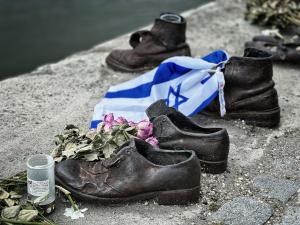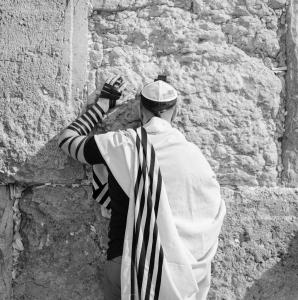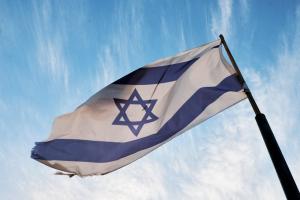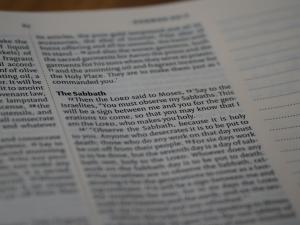On 7th October, Catholics commemorated the feast of Our Lady of the Rosary. The Blessed Virgin Mary is referred to as Our Lady of the Rosary in relation to the Holy Rosary devotion. This title has special significance on October 7, the feast day honoring the Christian armies’ victory at the Battle of Lepanto in 1571. After Pope Pius V urged Catholics to pray for victory, the triumph was credited to the Virgin Mary’s intervention through the recitation of the Rosary. For Catholics, the Rosary is a way of promoting peace, faith, and devotion to God.

The Attack
453 years ago, Christians won a battle, in today’s world, a little over a year ago, a battle began in Israel. On October 7, 2023, when the public were celebrating Simchat Torah, Hamas, the militant organization in control of Gaza launched a major and unprecedented onslaught against Israel. Widespread rocket fire, ground invasions, and hostage-taking were all part of Hamas’ massive attack on southern Israel. Israel quickly responded by declaring a state of war after being taken off guard by the attack. As the battle raged on the ground in southern Israel, the country launched airstrikes in the days that followed the attack – they targeted Hamas infrastructure in Gaza.

Several countries condemned the attack on Israel, however, the conflict continued, with no immediate end in sight, raising fears of a broader regional war. This event significantly shifted the dynamics of the Israeli-Palestinian conflict, leading to a humanitarian crisis in Gaza and southern Israel and sparking discussions about security, the role of Hamas, and international responses to terrorism and conflict.
Historical Trauma
Israel’s historical tragedy began long before it was established in 1948. The Jewish people have faced persecution throughout history, from ancient exile to the Crusades, the Spanish Inquisition, and Eastern European pogroms.

Following centuries of statelessness, the foundation of Israel was viewed as a shelter and homeland for Jews. However, the process of nation-building was traumatic. The Arab-Israeli War that followed the proclamation of independence resulted in the relocation of hundreds of thousands of Palestinians, dubbed the Nakba (“catastrophe”) in the Arab world. This triggered a comparable trauma among Palestinians, escalating the conflict and contributing to the unresolved tension that still shapes Israeli and Palestinian identities today.
The Palestinian Trauma
The pain of the Palestinian people must also be acknowledged in order to properly understand Israel’s suffering. There is a loop of violence, terror, and anger between Israelis and Palestinians because the conflict stems from deep-seated trauma on both sides. Like how the Holocaust and other conflicts built Israeli identity (both of individuals (Lily Ebert) and the community); the trauma of losing homes, having to live under military occupation, and experiencing brutality forms the collective identity of many Palestinians.

Due to this shared trauma, there is an unsolvable conflict where both parties see themselves as victims and find it difficult to acknowledge one other’s trauma. This cycle has become unbreakable because every act of violence exacerbates the wounds and feeds the terror narrative. Thus, the trauma of the Israeli-Palestinian conflict is not limited to differences in opinion on politics; rather, it also involves severe psychological injuries that obstruct the path to peace and healing.
A Resilient Nation
Although there is no disputing Israel’s trauma, it is also important to acknowledge the resilience that has emerged as a result of these tragedies. Trauma has become a source of strength for many Israelis and Jews, fueling their determination to survive while maintaining their sense of self and community. The concept of “Tikkun Olam,” or “fixing the world” reflects Jewish confidence that hardship may be overcome and a better, more equal society established.

Israel’s trauma has also developed a strong feeling of patriotism. For example, joining the military is regarded as a rite of passage for the majority of Israeli residents, as it becomes a way of safeguarding the state and ensuring that the Jewish people are not annihilated again. This tenacity is seen in Israel’s cultural, technological, and economic achievements, which have progressed despite being constantly in conflict.
Furthermore, trauma has affected Israel’s diplomatic and security policies. The “Iron Wall” concept, which emphasizes military power and deterrence, reflects Israel’s profound fear of vulnerability. While this worldview ensured Israel’s existence, it has also been criticized for increasing the conflict with Palestinians and surrounding states.
God’s Chosen Nation
Israel’s history has been one of perseverance and faith, marked by both success and suffering. Despite their suffering the Jewish people preserved their identity, which was founded on the idea that they are a nation chosen by God. The destruction of the Second Temple in 70 AD as well as the subsequent Diaspora, represented a watershed moment in Jewish history, scattering Jews all over the world. For nearly two millennia, the concept of returning to the Promised Land remained a key element in Jewish prayers. Many saw this incident as a fulfillment of the biblical prophecy and a sign of God’s continuing bond with the Jewish people.

In the Bible, Israel is portrayed as the nation through whom God would make known His rules, His love, and ultimately His plan of redemption for all of humanity. The prophets described Israel as a people whose fate is interconnected with God’s plan of deliverance, a light to the nations (Isaiah 49:6). Bible verses such as Isaiah 66:8 and Ezekiel 37, promote the belief that God’s ultimate plan for the end times includes restoring Israel.
In today’s world, Israel continues to be viewed by many as a symbol of God’s ongoing faithfulness to His promises. For Jewish people the survival and thriving of Israel are seen as a continuation of their covenant relationship with God. In Christian eschatology, Israel holds a significant place in discussions of the end times, as many believe that key events will center around the nation.













